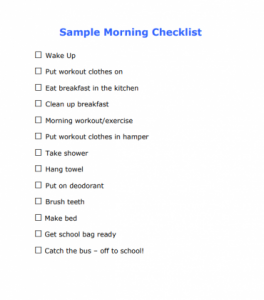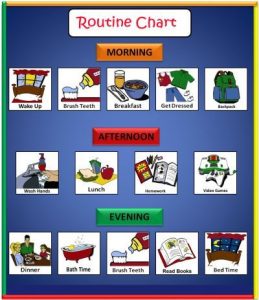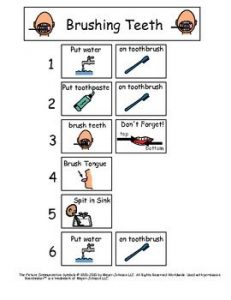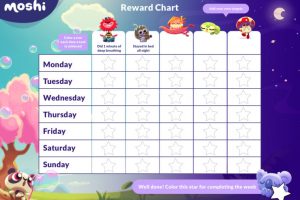
Activities to Promote Independent Life Skills in Autism
Activities to Promote Independent Life Skills in Autism
of a child’s life. We use life skills on a daily basis in our homes, schools & with the community around us. When we introduce these life skills with Autistics, it helps them become independent. It also improves their confidence and self-esteem.
What are life skills?
Life skills are the basic daily living skills. These include self-care activities, cooking, shopping, budgeting, organizing, and transportation. Life skills are learned over time. When we introduce life skills at a very young age, it helps children become more independent as they transition into adolescence and adulthood. It is important to remember at this stage that learning life skills does not happen overnight, but it takes time & practice.
So how do we teach life skills?
Life skills can be taught and practiced at home, in schools, and also within the community. Autistics learn these skills with instructions, schedules checklists, and more which help them to become more independent. Following are some activities that can be done at home to promote independence in Autism.
-
Creating To-do lists / Checklists
When working with life skills, it’s not one or two skills but there are a lot of these skills that a child may be required to use on a daily basis. You can simplify these skills by organizing them in a ‘To do list’. So how does this help? Many children with Autism find it easy to perform a task when it is simplified and organized. This is exactly what a ‘To do list’ does. You can make a ‘Morning To-do list’, ‘School To-do list’ etc. All these lists depend on what skills you are trying to achieve independence in. So, as the child finishes a task, they can check off that task and move on to the next one.

It is important to note that some children will need these lists until they gain independence in those tasks while others may require it to be independent.
-
Forming Schedules/ Routines

Routines or schedules are a set of activities that you do on a regular basis. And this is very important as practicing these skills will help in achieving independence. When you include these skills as a part of a routine such as ‘Brushing’ as a part of a daily morning routine. Your child then understands that it needs to be done before the next task. Initially, you will have to make, monitor & help your child transition from one activity to the next. As you keep helping your child with these activities, they will get better and better at it.
-
Giving clear & precise Instructions

As you go about these skills, you will realize that there are a lot of them. It can be overwhelming for children to follow these skills or even complete an entire activity. In this instance, what you can do is, you can give them clear & precise instruction. For example, if the activity is ‘Brushing’. You can give the instruction as “Take the toothbrush”. “Hold it in your hand”. “Take the toothpaste”. “Open the cap”, “Squeeze the toothpaste” etc. So these are examples of sequential instructions that you can give one by one as your child completes them. These instructions can be verbal or even accompanied by visuals (depending on your child’s preferences).
-
Reading Social Stories
Often, you would have experienced that it is not an easy task to implement a routine or complete the complete instructions. Every autistic child has different requirements and even different ways in which they learn. Reading social stories to them regarding the tasks that they have to complete may help. When you read a social story, the child also understands why this targeted skill is important for him to do. For example, a child does not want to brush his teeth in the morning. In this situation, it can become a bit tricky to use only a routine or a to-do list. Try reading a social story on brushing and then you can tell the child. “You will receive a reward at the end of the day for completing the activities” Then give the clear instruction to your child one by one and complete the task. All done!!!
Here is a link to some social stories that you can use at home: https://1specialplace.com/2021/05/15/the-homework-struggle-a-short-story/
-
Maintaining a Rewards Chart

As with the previous activity, you can maintain a chart. For example, you can give stickers for every task that your child completes on their own. These stickers can be exchanged for chocolate or extra playtime with a favorite toy. Slowly you will have to fade out the stickers. You can then give stickers for every two tasks that your child completes, keep increasing the tasks till all the rewards are faded off. And the activity becomes independent. Consult with our speech-language pathologists on how to use the reward chart to promote independence.
-
Generalization of the learned Skill
Your child has finally learned how to wash his hands with minimal instruction at home. Now what? Kudos to you!! Your child is now achieving independence with their life skills. But would your child be able to use that learned skill elsewhere? Such as a school, museum, or public place? Maybe or maybe not. What you can do is, try to use these skills in different situations. Especially those that your child frequently visits. For some it’s the school, for some it’s the daycare, etc. You can also notify other people around your child such as family members, caretakers and get them involved in your child’s journey to independence.
Developing these life skills is not a one-day task. It may not always be easy, but it can be achievable. As mentioned earlier, it is an ongoing process. You will require the help of highly trained specialists along your child’s journey. To know more, consult with us today!!
- Tips to Promote School Readiness - February 28, 2023
- Baby Sign Language - February 24, 2023
- Summer Speech Activities for Children - February 21, 2023


Leave a Comment
(0 Comments)